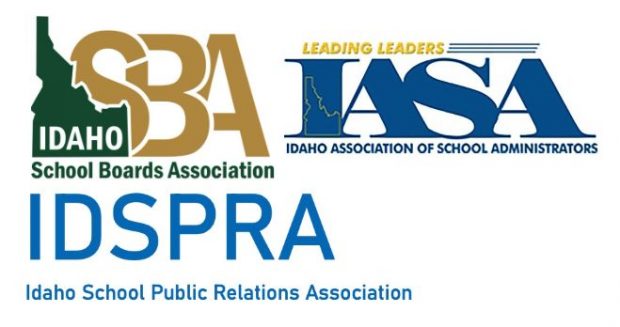After months of litigation, the Idaho Falls School District and Bonneville County Prosecutor Randy Neal have reached a settlement in a case alleging school employees inappropriately advocated for a bond measure.
Neal originally said former Idaho Falls superintendent James Shank and district spokesperson Margaret Wimborne violated the public integrity in elections act by using public dollars to promote a $250 million bond (which voters ultimately denied) leading up to the November 2022 election.
Neal fined both employees a combined $375, but the district fought the complaints. This week, a settlement was reached: the complaint against Wimborne was dismissed, and Shank’s $250 fine was paid (though not with district funds). It was unclear who did pay the fine.
The complaints were civil, not criminal, and the parties involved were not “required to ‘plead guilty’ or acknowledge they did something wrong,” Neal clarified in a press release.

It’s a case school leaders across the state have been closely watching, and its outcome will likely impact how they communicate with taxpayers about school funding measures going forward.

“This has sent quite a shockwave through the districts,” Neal said. “A clear message has been sent that they’ve got to be more careful … especially when they’re using public funds. If that message got across then everything else is gravy.”
In a separate press release on the settlement, the school district said it would “continue to provide its valued parents and patrons with the information needed to make voting decisions in accordance with state statutes.”
“D91 officials and trustees were eager to resolve this matter in recognition of the increasing litigation costs for D91 taxpayers,” the release read.
Although the district could have paid the relatively nominal fines and avoided the monthslong litigation, school leaders chose to fight the complaints on moral grounds.
According to the district’s records, it has spent nearly $90,000 on legal fees between July and October. (The district was also involved in extended litigation in a second case regarding a plant facilities levy that a judge ruled was invalid). Neal’s complaint was filed on May 18.
“It’s not about the fines, it’s about what’s right and wrong,” Idaho Falls superintendent Karla LaOrange told EdNews in September. She saw the complaints as “an attempt to obstruct the district’s efforts to share basic factual information with our parents and patrons.”

The case has sparked a statewide conversation on the difference between information and advocacy, because school employees are not allowed to use public funds to promote school funding measures like a bond or levy.
Neal contends that the district paid for materials like posters, postcards, and bookmarks, with messaging that crossed the line between information and advocacy due to words like “need,” “aged,” and “overcrowding.”
For example, the district created bookmarks that included statements like: “Our students need modern, safe, and secure schools” and “We need to address growth and crowding in schools.”
And district leaders used that wording against their lawyers’ advice, Neal wrote in his complaint.
In October, three well-known education organizations — representing Idaho trustees, administrators, and public information officers — penned a column in support of the Idaho Falls School District. They called out legislators for failing to uphold their constitutional duty to “provide safe and conducive learning environments,” and instead shifting that obligation to school boards and local patrons.

They agreed that public dollars should not be spent on advocacy, but said Idaho Falls’ communications were purely informational.
“School districts, cities, and counties must be able to communicate their needs to their patrons — especially when the needs are verifiable facts,” they wrote.
If school districts cannot communicate their needs, the organizations wrote, they may not be able to “sustain their operations or ever build a new school. Perhaps that is the point.”
Lisa Keller, the spokesperson for D91 Taxpayers, a watchdog group that opposed the November 2022 bond, said the case has been frustrating.

“The real loser is the taxpayers,” she said, pointing out that the public paid for both sides of the litigation — the prosecutor’s and the district’s. “The district should have just paid the fines and said ‘We’ll do better.’”
But Keller said the settlement is a “small win”: “They won’t be spending my tax dollars to lobby people to spend more of my tax dollars.”
Neal said he expects to see districts statewide change their tactics, by either being more careful with their wording or using private donations (as opposed to tax dollars) to pay for materials that could be seen as promotional.
“And that’s a win-win for everybody,” he said.
Idaho Education News data analyst Randy Schrader contributed to this report.
Past coverage:
- I.F. officials face civil complaint stemming from bond campaign
- A failed bond landed Idaho Falls in legal trouble, twice
- Prosecutor: “I didn’t pick this fight” with Idaho Falls school leaders
